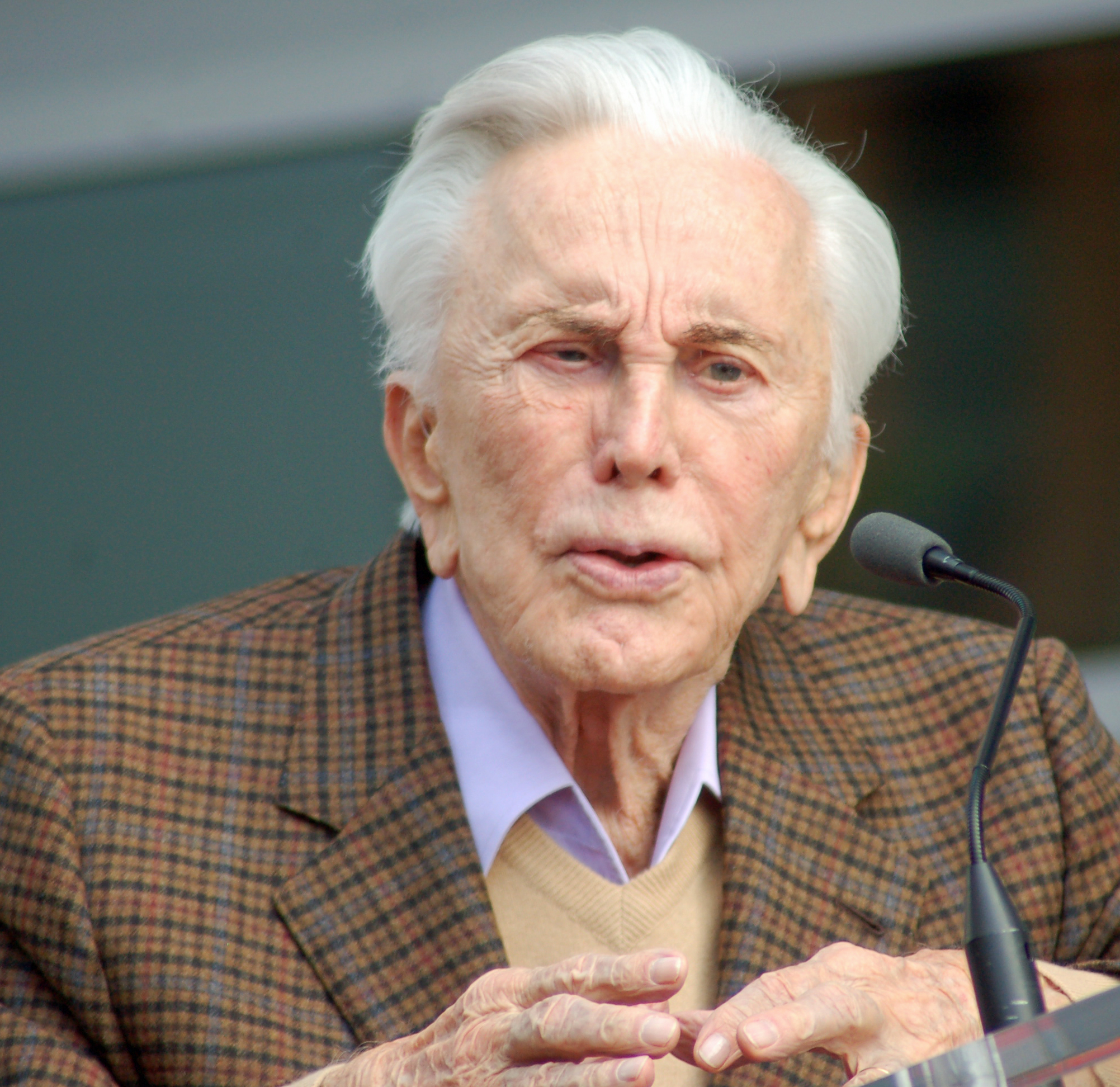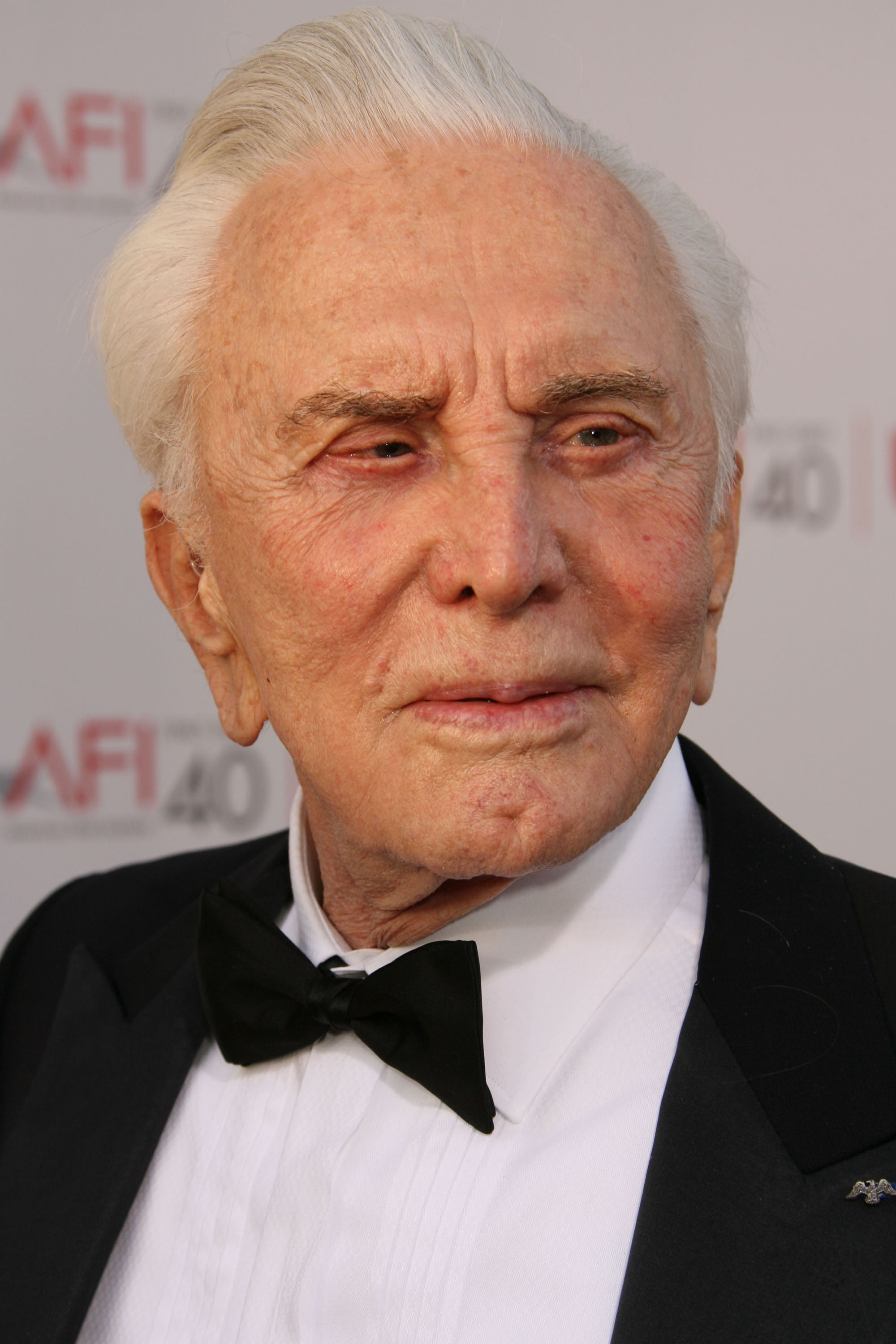Could one actor truly embody the grit of a bygone era and the enduring spirit of Hollywood?Kirk Douglas, a name synonymous with cinematic excellence, not only achieved this but also became a cultural touchstone, leaving an indelible mark on the world of film and beyond. His journey, from the humble streets of Amsterdam, New York, to the heights of international stardom, is a testament to his unwavering determination and profound talent.
Born Issur Danielovitch on December 9, 1916, in Amsterdam, New York, Douglas's story is one of remarkable resilience. His childhood was marked by financial struggles, as his family of Belarusian Jewish immigrants grappled with poverty. However, these early challenges instilled in him a fierce work ethic and an unyielding drive to succeed. These formative experiences would serve him well in the fiercely competitive world of Hollywood, where he would navigate a career spanning seven decades, leaving a legacy that few could match. His ascent from a modest background to becoming one of the most recognizable faces in film history is a narrative of grit and artistry.
| Category | Details |
|---|---|
| Full Name | Issur Danielovitch (later Kirk Douglas) |
| Born | December 9, 1916, Amsterdam, New York, USA |
| Died | February 5, 2020, Beverly Hills, California, USA |
| Nationality | American |
| Occupation | Actor, Producer, Author, Activist |
| Spouse(s) | Diana Dill (m. 19431951), Anne Buydens (m. 19542020) |
| Children | Michael Douglas, Joel Douglas, Peter Douglas, Eric Douglas |
| Notable Roles | "Champion" (1949), "20,000 Leagues Under the Sea" (1954), "Lust for Life" (1956), "Spartacus" (1960), "Paths of Glory" (1957) |
| Awards & Honors | Honorary Academy Award (1996), Presidential Medal of Freedom (1981), Numerous Golden Globe and BAFTA nominations |
| Notable Achievements | One of the biggest movie stars of the 1950s and 1960s; Produced and starred in "Spartacus", which broke the Hollywood blacklist; Instrumental in ending the practice of blacklisting writers; Prolific writer with numerous books published. |
| Reference | IMDB - Kirk Douglas |
Early Years
Born to Jewish immigrant parents who had fled the political and economic turmoil of Belarus, Kirk Douglass formative years were shaped by the struggles of his family. His father, a ragman, worked tirelessly to provide for his family, which meant Kirk had to take on a variety of odd jobs from a very young age. These early experiences, though difficult, instilled in him a deep sense of determination, resilience, and a relentless work ethic qualities that would become the bedrock of his extraordinary career.
- Unveiling Rebecca Vikernes Life Beliefs Impact
- Joe Bucks Height How Tall Is The Broadcaster Uncovered
Childhood Challenges
- Grew up in poverty, experiencing the hardships of an immigrant family in the early 20th century.
- Worked numerous jobs, including delivering newspapers and working in a factory, to contribute to his family's income.
- Served in the U.S. Navy during World War II, an experience that further shaped his character.
Breakout Roles
Douglas's entry into the world of cinema began in the late 1940s, with a significant role in "The Strange Love of Martha Ivers" (1946), showcasing his raw talent and charisma. However, it was the role of Midge Kelly, a ruthlessly ambitious boxer in "Champion" (1949), that catapulted him to stardom. His portrayal of Kelly, a complex and morally ambiguous character, was a revelation. It earned him his first Academy Award nomination, a testament to his ability to embody multifaceted characters with a depth that resonated with audiences and critics alike. This role set the stage for his career, marking him as an actor unafraid of exploring the darker aspects of the human condition.
Notable Early Performances
- "The Strange Love of Martha Ivers" (1946): A dramatic showcase of early talent and screen presence.
- "Champion" (1949): This role brought Douglas his first Academy Award nomination and established him as a major star, portraying a complex and morally ambiguous boxer.
- "The Bad and the Beautiful" (1952): Another Academy Award nomination, this time for his portrayal of a ruthless Hollywood producer, further demonstrating his range.
Acclaimed Films
The 1950s and 1960s were a period of unparalleled success for Kirk Douglas. He delivered a series of critically acclaimed performances in films that have become cinematic touchstones. His role in "Spartacus" (1960), in which he not only starred but also served as the executive producer, was a defining moment in his career. Beyond his compelling portrayal of the Thracian gladiator, Douglas played a pivotal role in challenging the Hollywood blacklist, ensuring that blacklisted writers like Dalton Trumbo were credited for their work. This act of defiance cemented his reputation as an actor with both artistic integrity and moral courage.
Signature Films
- "Spartacus" (1960): A historical epic and a symbol of resistance, showcasing Douglas's leadership both on and off-screen.
- "Lust for Life" (1956): His powerful portrayal of Vincent van Gogh earned him another Academy Award nomination for Best Actor, demonstrating his versatility.
- "20,000 Leagues Under the Sea" (1954): This Disney adaptation, a classic adventure film, introduced Douglas to a broader audience.
- "Paths of Glory" (1957): A stark anti-war film directed by Stanley Kubrick.
Personal Life
Kirk Douglas's personal life was as rich and dynamic as his career. He was married twice, first to Diana Dill from 1943 to 1951, with whom he had two sons, Michael and Joel, both of whom would follow in their father's footsteps in the film industry. In 1954, he married Anne Buydens, a producer, with whom he had two more sons, Peter and Eric. His relationship with his family was a constant source of strength, and he frequently emphasized their importance in his life. This close-knit family structure stood in contrast to the often turbulent world of Hollywood, offering Douglas a stable foundation throughout his long and successful career.
- Dave Abrams Exploring The Filmography Of A Hollywood Star
- Barry Whites Height Unveiling The Soul Mans Stature Legacy
Family Dynamics
- First marriage to Diana Dill, which resulted in two sons: Michael and Joel.
- Second marriage to Anne Buydens, with whom he shared a lifelong partnership and had two sons: Peter and Eric.
- Father to four sons, each contributing to the legacy of the Douglas family.
Activism and Philanthropy
Beyond his acting achievements, Kirk Douglas was deeply committed to humanitarian causes. He was a passionate advocate for arts education and healthcare, and he used his platform to support a variety of charitable initiatives. His dedication extended to promoting tolerance and fighting anti-Semitism, reflecting his personal values and his desire to contribute positively to society. Douglas's commitment to making a difference extended beyond the silver screen, demonstrating his belief in the power of philanthropy and social responsibility.
Key Contributions
- Extensive support for arts education programs, recognizing the importance of creativity in young lives.
- Advocacy for children's healthcare, championing the well-being of future generations.
- Promoting awareness and combating anti-Semitism, driven by a commitment to justice and equality.
Awards and Honors
The accolades bestowed upon Kirk Douglas reflect the esteem in which he was held by his peers and the industry. The honorary Academy Award he received in 1996 for his lifetime contributions to the film industry was a particularly poignant recognition of his enduring legacy. Furthermore, the Presidential Medal of Freedom, awarded in 1981, acknowledged his impact on the arts and his tireless humanitarian efforts. These honors underscore not only his artistic achievements but also his profound influence as a cultural figure.
Major Awards
- Multiple Academy Award nominations for Best Actor, recognizing his consistent excellence.
- Honorary Academy Award (1996), a lifetime achievement award honoring his contributions.
- Presidential Medal of Freedom (1981), a testament to his humanitarian work and contributions to the arts.
Legacy
The enduring legacy of Kirk Douglas is multifaceted. He has inspired generations of actors, and his commitment to challenging injustice in his personal and professional life set a new standard for Hollywood. His films continue to influence cinematic history, and his courage and determination have cemented his place as an icon of American cinema. His impact extends beyond the screen, serving as a reminder of the power of art to inspire change and the importance of using one's platform for the greater good.
Impact on Future Generations
- His influence on a generation of actors is immeasurable, inspiring many to pursue careers in film.
- He set a precedent for activism in Hollywood, demonstrating the importance of using one's voice for social change.
- His films remain influential, studied, and celebrated, continuing to shape cinematic history.
- David Goggins Jennifer The Untold Story Of Their Relationship
- Discovering Alexander James Egan Biography Art And Impact


